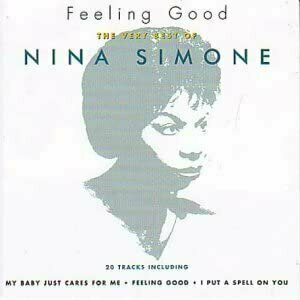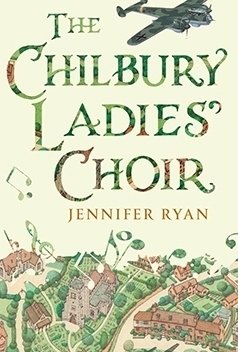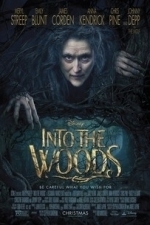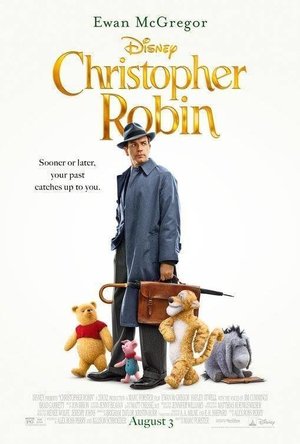Search
Search results
Emeli Sande recommended My Love Is Your Love by Whitney Houston in Music (curated)
Tim Booth recommended Feeling Good: The Very Best of Nina Simone by Nina Simone in Music (curated)
Lucy Buglass (45 KP) rated Rare Beasts (2019) in Movies
Oct 14, 2019
Directorial debuts are tough, and it gives people a chance to establish their personal style. Sadly for me, Billie Piper’s first film had a style that didn’t sit well with me at all. She was heavily involved in the project; directing, writing and starring in it, but her unique first film is perhaps a bit too quirky.
Rare Beasts follows Mandy, a career-driven single mother (Billie Piper) and her turbulent relationship with Pete (Leo Bill). Possibly the most frustrating thing about this film as it’s unclear why the two of them even ended up together at all.
It’s not uncommon for people to choose poorly when they’re dating, and end up in a relationship that doesn’t work, but Rare Beasts offers no reason for the two to even end up together in the first place. Mandy’s a single mother, she’s wild, she wears bold clothing, and Pete is a traditionalist who is, frankly, a misogynist with anger issues.
Interestingly, the film’s synopsis describes Pete as ‘charming’, and I’m unable to see that quality in him, nor is it ever shown from Mandy’s point of view. She never once looks at Pete lovingly, or seems charmed by him.
The lack of context or any indication as to what drove them to be together is a problem for me. Even if we saw one tiny nice moment between them it would make sense, but throughout the film they’re consistently awful to each other with no redeeming features.
Combined with a narrative that is all over the place and dialogue that feels very unnatural, it comes across as jarring most of the time. I have no issue with unconventional film styles, but I found it very hard to follow what was going on at various points.
It seems Rare Beasts is confused about what tone its actually going for, switching between whimsical musical style scenes (minus the music or singing) and gritty realism in a matter of seconds.
I appreciated the efforts to raise awareness of social issues such as domestic abuse, gender inequalities and the struggles of bringing up a child as a single parent, but these messages are squashed by a visual style that is rather overwhelming.
There is also a sub-plot involving Mandy’s parents (Kerry Fox and David Thewlis), who have separated but appear to have a complicated relationship. This is never fully explained either so it’s hard to connect with them, especially when Mandy’s mother falls ill.
This attempt to tug at our heartstrings falls flat, which is disappointing as it had the potential to bring some real, raw emotion to Rare Beasts. Sadly it’s as disjoined and confusing as Mandy and Pete’s relationship.
It’s clear those involved in the film gave it their all, and I can’t fault the quality of the actors even though some of the lines didn’t work and felt too far removed from natural conversation to be taken seriously. At least they tried.
Billie Piper has talent, there’s no doubt about it, but she hasn’t quite made it work in this very daring debut behind the camera. If Rare Beasts was attempting to be relatable and resonate with audiences, it failed to do that with me.
Rare Beasts follows Mandy, a career-driven single mother (Billie Piper) and her turbulent relationship with Pete (Leo Bill). Possibly the most frustrating thing about this film as it’s unclear why the two of them even ended up together at all.
It’s not uncommon for people to choose poorly when they’re dating, and end up in a relationship that doesn’t work, but Rare Beasts offers no reason for the two to even end up together in the first place. Mandy’s a single mother, she’s wild, she wears bold clothing, and Pete is a traditionalist who is, frankly, a misogynist with anger issues.
Interestingly, the film’s synopsis describes Pete as ‘charming’, and I’m unable to see that quality in him, nor is it ever shown from Mandy’s point of view. She never once looks at Pete lovingly, or seems charmed by him.
The lack of context or any indication as to what drove them to be together is a problem for me. Even if we saw one tiny nice moment between them it would make sense, but throughout the film they’re consistently awful to each other with no redeeming features.
Combined with a narrative that is all over the place and dialogue that feels very unnatural, it comes across as jarring most of the time. I have no issue with unconventional film styles, but I found it very hard to follow what was going on at various points.
It seems Rare Beasts is confused about what tone its actually going for, switching between whimsical musical style scenes (minus the music or singing) and gritty realism in a matter of seconds.
I appreciated the efforts to raise awareness of social issues such as domestic abuse, gender inequalities and the struggles of bringing up a child as a single parent, but these messages are squashed by a visual style that is rather overwhelming.
There is also a sub-plot involving Mandy’s parents (Kerry Fox and David Thewlis), who have separated but appear to have a complicated relationship. This is never fully explained either so it’s hard to connect with them, especially when Mandy’s mother falls ill.
This attempt to tug at our heartstrings falls flat, which is disappointing as it had the potential to bring some real, raw emotion to Rare Beasts. Sadly it’s as disjoined and confusing as Mandy and Pete’s relationship.
It’s clear those involved in the film gave it their all, and I can’t fault the quality of the actors even though some of the lines didn’t work and felt too far removed from natural conversation to be taken seriously. At least they tried.
Billie Piper has talent, there’s no doubt about it, but she hasn’t quite made it work in this very daring debut behind the camera. If Rare Beasts was attempting to be relatable and resonate with audiences, it failed to do that with me.

Yokara - Hát Karaoke Youtube
Entertainment and Music
App
Yokara is all what you need. It's one of the best free karaoke applications using videos from...
Hazel (1853 KP) rated The Chilbury Ladies' Choir in Books
May 23, 2017
Wartime Fiction
This eBook was provided by the publisher via NetGalley in exchange for an honest review
"Just because the men have gone to war, why do we have to close the choir? And precisely when we need it most!"
Set in the fictional village of Chilbury, Kent during the Second World War, The Chilbury Ladies’ Choir explores the lives of the women left behind whilst the men go off to fight. The remaining villagers are disappointed at the closing of the church choir, which, according to the vicar, cannot go on without any men to sing the tenor and bass parts. However, the arrival of bold, forthright Primrose Trent brings the birth of a new choir, a choir for women only.
Although a war is going on, the ladies of Chilbury have so many other things on their minds. Told through a conflation letters and diary entries, The Chilbury Ladies’ Choir reveals the everyday lives of a handful of characters. Mrs Tilling’s journal provides an overview of the general events, whilst 18-year-old Venetia’s letters divulge the wiles and charms she uses in the name of romance. Other characters, particularly the young teenager, Kitty, offer other insights to the goings on in the village.
From falling in love, to having babies, The Chilbury Ladies’ Choir is full of secrets, schemes and misunderstandings that almost let the villagers forget there is a war on. However, the effects of war do reach the little village, bringing with it terror and grief.
The individual stories that make up the book provide the reader with a number of scenarios that are full of emotion, but equally entertain. One moment the horror of war could leave readers in flood of tears, the next, Mrs B.’s pretentious personality and vaunting comments bring amusement and laughter.
All the while these events are playing out, the Chilbury Ladies’ Choir pulls the women together, providing them with a source of comfort to get them through the terrible times. No matter what disasters befall them, whether caused by war or their own actions, joining together in song gives them a purpose and opportunity to have a break from their fears and grief. War may destroy, but they will carry on singing.
Written in the manner of private letters and journals gives the novel a personal touch. The story is not merely narrated, it is expressed through the emotion and feelings of individual characters, making the scenarios seem more authentic. The downside to this method is the lack of distinction between each character’s voices. With no detectable dialect, the musings of a 13-year-old are composed in much the same manner as the much older Mrs Tilling.
The Chilbury Ladies’ Choir is an enjoyable piece of historical literature, which is bound to appeal to many people. Although set during World War II, its primary focus is on the people in the village, making it more attractive to readers who are fed up of reading about bombs and fighting. A mix of family issues, bribery and romance provide considerably more entertainment than a generic wartime novel. Being Jennifer Ryan’s debut novel, The Chilbury Ladies’ Choir is of a quality that suggests the author has so much more to deliver in the not-so-distant future.
"Just because the men have gone to war, why do we have to close the choir? And precisely when we need it most!"
Set in the fictional village of Chilbury, Kent during the Second World War, The Chilbury Ladies’ Choir explores the lives of the women left behind whilst the men go off to fight. The remaining villagers are disappointed at the closing of the church choir, which, according to the vicar, cannot go on without any men to sing the tenor and bass parts. However, the arrival of bold, forthright Primrose Trent brings the birth of a new choir, a choir for women only.
Although a war is going on, the ladies of Chilbury have so many other things on their minds. Told through a conflation letters and diary entries, The Chilbury Ladies’ Choir reveals the everyday lives of a handful of characters. Mrs Tilling’s journal provides an overview of the general events, whilst 18-year-old Venetia’s letters divulge the wiles and charms she uses in the name of romance. Other characters, particularly the young teenager, Kitty, offer other insights to the goings on in the village.
From falling in love, to having babies, The Chilbury Ladies’ Choir is full of secrets, schemes and misunderstandings that almost let the villagers forget there is a war on. However, the effects of war do reach the little village, bringing with it terror and grief.
The individual stories that make up the book provide the reader with a number of scenarios that are full of emotion, but equally entertain. One moment the horror of war could leave readers in flood of tears, the next, Mrs B.’s pretentious personality and vaunting comments bring amusement and laughter.
All the while these events are playing out, the Chilbury Ladies’ Choir pulls the women together, providing them with a source of comfort to get them through the terrible times. No matter what disasters befall them, whether caused by war or their own actions, joining together in song gives them a purpose and opportunity to have a break from their fears and grief. War may destroy, but they will carry on singing.
Written in the manner of private letters and journals gives the novel a personal touch. The story is not merely narrated, it is expressed through the emotion and feelings of individual characters, making the scenarios seem more authentic. The downside to this method is the lack of distinction between each character’s voices. With no detectable dialect, the musings of a 13-year-old are composed in much the same manner as the much older Mrs Tilling.
The Chilbury Ladies’ Choir is an enjoyable piece of historical literature, which is bound to appeal to many people. Although set during World War II, its primary focus is on the people in the village, making it more attractive to readers who are fed up of reading about bombs and fighting. A mix of family issues, bribery and romance provide considerably more entertainment than a generic wartime novel. Being Jennifer Ryan’s debut novel, The Chilbury Ladies’ Choir is of a quality that suggests the author has so much more to deliver in the not-so-distant future.
Movie Metropolis (309 KP) rated Into the Woods (2014) in Movies
Jun 11, 2019
A charming adaptation
Wolves, witches and giants all appear in the film adaptation of Stephen Sondheim’s popular musical which takes all the best bits of our favourite fairytales and mashes them together in one engaging, song-filled rollercoaster.
However, musical movie adaptations are notoriously difficult to get right, from casting restraints to the inclusion of all the songs, transferring them to the silver screen is not something to be entered into lightly. So does director Rob Marhsall’s effort elevate itself above its peers?
Into the Woods has numerous plot threads that all end up coming together in one way or another, but the main storyline follows a baker (James Corden) and his wife, played gloriously by Emily Blunt, as they come to realise they cannot have a child.
Alas, a witch – who just so happens to live next door – has a way to provide them with what they want as long as they get a few items for her in the meantime.
An all-star cast including the likes of Chris Pine, Anna Kendrick, Christine Baranski, Lucy Punch, Johnny Depp and of course Meryl Streep all give their all in a film that is brimming with tantalising cinematography and stunning songs.
meryl-streep-into-the-woodsGenerally speaking, the female cast fares better in the singing portions of the film, although Chris Pine and Billy Magnussen had the audience in intentional fits of laughter in one particular sequence as two handsome Princes.
Unfortunately, Into the Wood’s greatest asset, its cast, is also its biggest undoing. Having so many story threads means that there isn’t any emotional attachment to the characters – despite the film’s numerous attempts to tug at the heartstrings.
Despite a deeply heartfelt performance of ‘Stay with Me’ from Meryl Streep, the film just steadily rolls itself from admittedly thrilling set piece to set piece without getting bogged down in nitty gritty character development.
Thankfully, the glorious cinematography that featured in the trailer continues throughout. An enclosed feeling makes you feel like you’re actually watching a stage show rather than a film, albeit one with a much higher budget, and this is one of its most captivating features.
Director Rob Marshall has managed to keep the pantomime feel despite the fact the audience is watching in a cinema – the locations are never overdone and everything feels nicely claustrophobic, adding to the eerie atmosphere.
However, the final act is unnecessarily long and its foray into deeper territory means the magic and sparkle is well and truly lost. This is a real shame as there are numerous moments where the film could end on a high, rather than delving into a murky and at times, incomprehensible final third.
Overall, Into the Woods is a charming adaptation of the popular musical and despite its slightly overlong running time and a disappointing final act, it manages to stay on course for a perfectly adequate, if underwhelming finale.
The entire cast have a ball with their characters with Meryl Streep and Emily Blunt being particular highlights throughout.
Parents beware however, its PG certification may be slightly too lenient for smaller children, who will no doubt be intrigued by the premise of combining our most-loved fairytales.
https://moviemetropolis.net/2015/01/17/a-charming-adaptation-into-the-woods-review/
However, musical movie adaptations are notoriously difficult to get right, from casting restraints to the inclusion of all the songs, transferring them to the silver screen is not something to be entered into lightly. So does director Rob Marhsall’s effort elevate itself above its peers?
Into the Woods has numerous plot threads that all end up coming together in one way or another, but the main storyline follows a baker (James Corden) and his wife, played gloriously by Emily Blunt, as they come to realise they cannot have a child.
Alas, a witch – who just so happens to live next door – has a way to provide them with what they want as long as they get a few items for her in the meantime.
An all-star cast including the likes of Chris Pine, Anna Kendrick, Christine Baranski, Lucy Punch, Johnny Depp and of course Meryl Streep all give their all in a film that is brimming with tantalising cinematography and stunning songs.
meryl-streep-into-the-woodsGenerally speaking, the female cast fares better in the singing portions of the film, although Chris Pine and Billy Magnussen had the audience in intentional fits of laughter in one particular sequence as two handsome Princes.
Unfortunately, Into the Wood’s greatest asset, its cast, is also its biggest undoing. Having so many story threads means that there isn’t any emotional attachment to the characters – despite the film’s numerous attempts to tug at the heartstrings.
Despite a deeply heartfelt performance of ‘Stay with Me’ from Meryl Streep, the film just steadily rolls itself from admittedly thrilling set piece to set piece without getting bogged down in nitty gritty character development.
Thankfully, the glorious cinematography that featured in the trailer continues throughout. An enclosed feeling makes you feel like you’re actually watching a stage show rather than a film, albeit one with a much higher budget, and this is one of its most captivating features.
Director Rob Marshall has managed to keep the pantomime feel despite the fact the audience is watching in a cinema – the locations are never overdone and everything feels nicely claustrophobic, adding to the eerie atmosphere.
However, the final act is unnecessarily long and its foray into deeper territory means the magic and sparkle is well and truly lost. This is a real shame as there are numerous moments where the film could end on a high, rather than delving into a murky and at times, incomprehensible final third.
Overall, Into the Woods is a charming adaptation of the popular musical and despite its slightly overlong running time and a disappointing final act, it manages to stay on course for a perfectly adequate, if underwhelming finale.
The entire cast have a ball with their characters with Meryl Streep and Emily Blunt being particular highlights throughout.
Parents beware however, its PG certification may be slightly too lenient for smaller children, who will no doubt be intrigued by the premise of combining our most-loved fairytales.
https://moviemetropolis.net/2015/01/17/a-charming-adaptation-into-the-woods-review/
Daniel Boyd (1066 KP) rated Bohemian Rhapsody (2018) in Movies
Oct 25, 2018 (Updated Oct 25, 2018)
Sublime performance from Rami Malek (1 more)
Sound mixing
They Will Rock You
I feel like I should preface this review with some context. Queen were the first band that I was properly into and the Bohemian Rhapsody/These Are The Days Of Our Loves double A side CD was the first piece of music that I ever bought with my own money. I have loved Queen's music for the vast majority of my life and I have grown up watching their concerts and music videos. I have been waiting for this movie to be made for a long time.
So did it meet my lofty expectations? Well, that depends on what aspects you choose to highlight. If you are asking me if Rami Malek did a good job portraying Freddie Mercury, then I would reply; that is the understatement of the century. This performance is the best I've seen so far this year. There were points that I genuinely forgot that I wasn't watching the real Freddie onscreen, Malek totally disappeared into the persona and if there is any justice, the academy will recognise that come Oscar nomination time. Not only did he capture Freddie's onstage mannerisms, but even the subtle way that Freddie would shift his eyes or lick his lips during interviews etc was absolutely spot on. In terms of the singing, I believe the method used was that Malek would sing into a computer and Freddie's voice was then added over the top, then it was manipulated to where it best resembled Freddie's vocal. If this film deserves another Oscar nod, it's for the sound mixing. They managed to recreate Freddie's unique vocal range perfectly and the lip syncing is also lined up incredibly well.
The rest of the cast are great too. The rest of the band were well cast, especially Gwilym Lee as Brian May. I really enjoyed the chemistry and camaraderie between the band members too. I also enjoyed what Aidan Gillen, Tom Hollander and an unrecognisable Mike Myers brought to the film. Lucy Boynton was also believable as Freddie's one true love, Mary Austin and she and Malek brought a new dimension to Mary's and Freddie's relationship that I had never really thought too much about.
Could the movie have went further than it did in terms of portraying the hedonism went on in Freddie's life? Yes, it definitely could have and that was one of my main concerns going in. I was concerned regarding the film's 12A rating and wondered how they were going to get around this and still show the sexually driven, intense life that Freddie led. Thankfully, I felt that the movie still managed to contain enough implications and allusions to the more adult stuff in the story that you were able to fill in the blanks without feeling robbed of too much of the narrative.
Unfortunately, there was a fairly important part in the movie where the sound abruptly cut out in my cinema hall for about 30 seconds, this obviously isn't the movie's fault, but it did detract from my initial viewing.
Overall, I enjoyed Bohemian Rhapsody. It catalogued Queen's exceptional inventory of hits and did a fantastic job in casting the right actor to portray a modern day icon. The other actors that rounded out the cast helped to sell the whole movie and the production was very well done in terms of recreating the talent and energy that this band were famous for.
So did it meet my lofty expectations? Well, that depends on what aspects you choose to highlight. If you are asking me if Rami Malek did a good job portraying Freddie Mercury, then I would reply; that is the understatement of the century. This performance is the best I've seen so far this year. There were points that I genuinely forgot that I wasn't watching the real Freddie onscreen, Malek totally disappeared into the persona and if there is any justice, the academy will recognise that come Oscar nomination time. Not only did he capture Freddie's onstage mannerisms, but even the subtle way that Freddie would shift his eyes or lick his lips during interviews etc was absolutely spot on. In terms of the singing, I believe the method used was that Malek would sing into a computer and Freddie's voice was then added over the top, then it was manipulated to where it best resembled Freddie's vocal. If this film deserves another Oscar nod, it's for the sound mixing. They managed to recreate Freddie's unique vocal range perfectly and the lip syncing is also lined up incredibly well.
The rest of the cast are great too. The rest of the band were well cast, especially Gwilym Lee as Brian May. I really enjoyed the chemistry and camaraderie between the band members too. I also enjoyed what Aidan Gillen, Tom Hollander and an unrecognisable Mike Myers brought to the film. Lucy Boynton was also believable as Freddie's one true love, Mary Austin and she and Malek brought a new dimension to Mary's and Freddie's relationship that I had never really thought too much about.
Could the movie have went further than it did in terms of portraying the hedonism went on in Freddie's life? Yes, it definitely could have and that was one of my main concerns going in. I was concerned regarding the film's 12A rating and wondered how they were going to get around this and still show the sexually driven, intense life that Freddie led. Thankfully, I felt that the movie still managed to contain enough implications and allusions to the more adult stuff in the story that you were able to fill in the blanks without feeling robbed of too much of the narrative.
Unfortunately, there was a fairly important part in the movie where the sound abruptly cut out in my cinema hall for about 30 seconds, this obviously isn't the movie's fault, but it did detract from my initial viewing.
Overall, I enjoyed Bohemian Rhapsody. It catalogued Queen's exceptional inventory of hits and did a fantastic job in casting the right actor to portray a modern day icon. The other actors that rounded out the cast helped to sell the whole movie and the production was very well done in terms of recreating the talent and energy that this band were famous for.
Hazel (1853 KP) rated The Chilbury Ladies' Choir in Books
Dec 17, 2018
<i>This eBook was provided by the publisher via NetGalley in exchange for an honest review </i>
"Just because the men have gone to war, why do we have to close the choir? And precisely when we need it most!"
Set in the fictional village of Chilbury, Kent during the Second World War, <i>The Chilbury Ladies’ Choir</i> explores the lives of the women left behind whilst the men go off to fight. The remaining villagers are disappointed at the closing of the church choir, which, according to the vicar, cannot go on without any men to sing the tenor and bass parts. However, the arrival of bold, forthright Primrose Trent brings the birth of a new choir, a choir for women only.
Although a war is going on, the ladies of Chilbury have so many other things on their minds. Told through a conflation letters and diary entries, <i>The Chilbury Ladies’ Choir</i> reveals the everyday lives of a handful of characters. Mrs Tilling’s journal provides an overview of the general events, whilst 18-year-old Venetia’s letters divulge the wiles and charms she uses in the name of romance. Other characters, particularly the young teenager, Kitty, offer other insights to the goings on in the village.
From falling in love, to having babies, <i>The Chilbury Ladies’ Choir</i> is full of secrets, schemes and misunderstandings that almost let the villagers forget there is a war on. However, the effects of war do reach the little village, bringing with it terror and grief.
The individual stories that make up the book provide the reader with a number of scenarios that are full of emotion, but equally entertain. One moment the horror of war could leave readers in flood of tears, the next, Mrs B.’s pretentious personality and vaunting comments bring amusement and laughter.
All the while these events are playing out, the Chilbury Ladies’ Choir pulls the women together, providing them with a source of comfort to get them through the terrible times. No matter what disasters befall them, whether caused by war or their own actions, joining together in song gives them a purpose and opportunity to have a break from their fears and grief. War may destroy, but they will carry on singing.
Written in the manner of private letters and journals gives the novel a personal touch. The story is not merely narrated, it is expressed through the emotion and feelings of individual characters, making the scenarios seem more authentic. The downside to this method is the lack of distinction between each character’s voices. With no detectable dialect, the musings of a 13-year-old are composed in much the same manner as the much older Mrs Tilling.
<i>The Chilbury Ladies’ Choir</i> is an enjoyable piece of historical literature, which is bound to appeal to many people. Although set during World War II, its primary focus is on the people in the village, making it more attractive to readers who are fed up of reading about bombs and fighting. A mix of family issues, bribery and romance provide considerably more entertainment than a generic wartime novel. Being Jennifer Ryan’s debut novel, <i>The Chilbury Ladies’ Choir</i> is of a quality that suggests the author has so much more to deliver in the not-so-distant future.
"Just because the men have gone to war, why do we have to close the choir? And precisely when we need it most!"
Set in the fictional village of Chilbury, Kent during the Second World War, <i>The Chilbury Ladies’ Choir</i> explores the lives of the women left behind whilst the men go off to fight. The remaining villagers are disappointed at the closing of the church choir, which, according to the vicar, cannot go on without any men to sing the tenor and bass parts. However, the arrival of bold, forthright Primrose Trent brings the birth of a new choir, a choir for women only.
Although a war is going on, the ladies of Chilbury have so many other things on their minds. Told through a conflation letters and diary entries, <i>The Chilbury Ladies’ Choir</i> reveals the everyday lives of a handful of characters. Mrs Tilling’s journal provides an overview of the general events, whilst 18-year-old Venetia’s letters divulge the wiles and charms she uses in the name of romance. Other characters, particularly the young teenager, Kitty, offer other insights to the goings on in the village.
From falling in love, to having babies, <i>The Chilbury Ladies’ Choir</i> is full of secrets, schemes and misunderstandings that almost let the villagers forget there is a war on. However, the effects of war do reach the little village, bringing with it terror and grief.
The individual stories that make up the book provide the reader with a number of scenarios that are full of emotion, but equally entertain. One moment the horror of war could leave readers in flood of tears, the next, Mrs B.’s pretentious personality and vaunting comments bring amusement and laughter.
All the while these events are playing out, the Chilbury Ladies’ Choir pulls the women together, providing them with a source of comfort to get them through the terrible times. No matter what disasters befall them, whether caused by war or their own actions, joining together in song gives them a purpose and opportunity to have a break from their fears and grief. War may destroy, but they will carry on singing.
Written in the manner of private letters and journals gives the novel a personal touch. The story is not merely narrated, it is expressed through the emotion and feelings of individual characters, making the scenarios seem more authentic. The downside to this method is the lack of distinction between each character’s voices. With no detectable dialect, the musings of a 13-year-old are composed in much the same manner as the much older Mrs Tilling.
<i>The Chilbury Ladies’ Choir</i> is an enjoyable piece of historical literature, which is bound to appeal to many people. Although set during World War II, its primary focus is on the people in the village, making it more attractive to readers who are fed up of reading about bombs and fighting. A mix of family issues, bribery and romance provide considerably more entertainment than a generic wartime novel. Being Jennifer Ryan’s debut novel, <i>The Chilbury Ladies’ Choir</i> is of a quality that suggests the author has so much more to deliver in the not-so-distant future.
Hazel (1853 KP) rated Saint Death in Books
Dec 17, 2018
<i>This ARC was provided by the publisher via NetGalley in exchange for an honest review </i>
What must life be like living in a poor neighbourhood? Every night your sleep is disturbed by gunshots, the people you know slowly disappear each time a gang raids the town, you live in fear for your own life. This is the concept international award-winning author Marcus Sedgwick explores in his latest Young Adult novel. Set in Anapra, one of the poorest communities in Mexico, Sedgwick delivers a story of poverty, gang crime and greed.
A young man – presumably still in his teens – named Arturo is living in a falling down shack, surviving on the small amount he earns at the local garage. Having kept to himself for the past year in order to remain safe, he experiences mixed emotions when his long lost friend turns up on his door stop – if you can call it that – and asks him to win $1000 by gambling at cards to appease a brutal gang leader.
What follows is an intense game against dangerous criminals with only prayers to Santa Muerte – Saint Death – to help Arturo get by. However, in the same way that the gang leaders are obsessed with wealth, Arturo begins to be overcome with greed, putting both himself and his friend in mortal danger.
<i>Saint Death</i> is not a book to be <i>liked</i>, after all, who would be fond of death, pain and violence? Instead it is a story that introduces an alternative culture to the readers – presuming that most will be from the more typical western world. Sedgwick throws us right into the slums of Mexico where religion, superstition, law and safety have an entirely different meaning. We learn that life in these areas is mostly a war between power and poverty, with the wealthy naturally championing over the rest.
Unfortunately <i>Saint Death</i> is a difficult book to read. For a start, it is a little bit boring. Whilst the events may be realistic there is no thrill or enjoyment garnered from reading about them. Understandably, Sedgwick is trying to bring a sense of culture into his work, however there is barely anything that a Young Adult reader can relate to. We are never told Arturo’s age and only assume he his in his teens, however he acts like a much older adult. It is difficult to imagine and comprehend the poverty, gangs and violence when we have not been witness to it ourselves. Whilst attempting to shock, Sedgwick lacks on description making it a challenge to picture the scene in our heads.
Prior to this book, I had only read Sedgwick’s <i>My Sword Hand is Singing</i> (2006), therefore I was unsure what to expect with his latest novel. It was my understanding that he tends to write horror or paranormal novels, whereas <i>Saint Death</i> was a complete change of genre. Of course authors experiment with their writing style all the time; some are successful, others less so. In this instance I personally think Sedgwick fell short of his goal, trying too hard to copy other writers that had influenced him to make this conversion. Whether Sedgwick decides to continue along this theme or revert back to what he has already been successful with remains to be seen, but I am hoping for the latter.
What must life be like living in a poor neighbourhood? Every night your sleep is disturbed by gunshots, the people you know slowly disappear each time a gang raids the town, you live in fear for your own life. This is the concept international award-winning author Marcus Sedgwick explores in his latest Young Adult novel. Set in Anapra, one of the poorest communities in Mexico, Sedgwick delivers a story of poverty, gang crime and greed.
A young man – presumably still in his teens – named Arturo is living in a falling down shack, surviving on the small amount he earns at the local garage. Having kept to himself for the past year in order to remain safe, he experiences mixed emotions when his long lost friend turns up on his door stop – if you can call it that – and asks him to win $1000 by gambling at cards to appease a brutal gang leader.
What follows is an intense game against dangerous criminals with only prayers to Santa Muerte – Saint Death – to help Arturo get by. However, in the same way that the gang leaders are obsessed with wealth, Arturo begins to be overcome with greed, putting both himself and his friend in mortal danger.
<i>Saint Death</i> is not a book to be <i>liked</i>, after all, who would be fond of death, pain and violence? Instead it is a story that introduces an alternative culture to the readers – presuming that most will be from the more typical western world. Sedgwick throws us right into the slums of Mexico where religion, superstition, law and safety have an entirely different meaning. We learn that life in these areas is mostly a war between power and poverty, with the wealthy naturally championing over the rest.
Unfortunately <i>Saint Death</i> is a difficult book to read. For a start, it is a little bit boring. Whilst the events may be realistic there is no thrill or enjoyment garnered from reading about them. Understandably, Sedgwick is trying to bring a sense of culture into his work, however there is barely anything that a Young Adult reader can relate to. We are never told Arturo’s age and only assume he his in his teens, however he acts like a much older adult. It is difficult to imagine and comprehend the poverty, gangs and violence when we have not been witness to it ourselves. Whilst attempting to shock, Sedgwick lacks on description making it a challenge to picture the scene in our heads.
Prior to this book, I had only read Sedgwick’s <i>My Sword Hand is Singing</i> (2006), therefore I was unsure what to expect with his latest novel. It was my understanding that he tends to write horror or paranormal novels, whereas <i>Saint Death</i> was a complete change of genre. Of course authors experiment with their writing style all the time; some are successful, others less so. In this instance I personally think Sedgwick fell short of his goal, trying too hard to copy other writers that had influenced him to make this conversion. Whether Sedgwick decides to continue along this theme or revert back to what he has already been successful with remains to be seen, but I am hoping for the latter.
Gareth von Kallenbach (980 KP) rated Christopher Robin (2018) in Movies
Jul 8, 2019
Winnie the Pooh, the much love bear created by A.A. Milne and E.H. Shepard, has been brought by Disney in enchantingly live action in Christopher Robin. The story begins in the hundred acre woods where little Christopher Robin is spending his last day having a picnic with his dear friends: Eeyore(Brad Garrett), Owl(Toby Jones), Rabbit(Peter Capaldi), Kanga(Sophie Okonedo) and Roo(Sara Sheen), Piglet(Nick Mohammed) Tigger and Pooh(Both beautifully voiced by Jim Cummings). The voice actor cast was rather surprising, but quite spot on for each character. I was absolutely drawn into Christopher Robin’s world.
We are transported through Christopher Robin’s journey from boarding school as a child, his teenage years through secondary education, to becoming an adult, meeting Evelyn(Hayley Atwell) who becomes his wife, leaving for World War II, returning from war to his wife and young daughter Madeline(Bronte Carmichael). Christopher Robin(Ewan McGregor) is now a grown man, working for Winslow, making luggage for the travelling set. He has been tasked to find ways to reduce waste for efficiency. Times are tough after the war and not many people are spending money on travel, therefore no one is buying luggage for their trips. His boss, Giles Winslow(Mark Gatiss, who seems to enjoy playing this feckless git) expects him to work through the weekend to come up with ideas to meet an overall 20% reduction or else Winslow will cut the workforce.
The plan was to spend his weekend with his family down at the cottage. The order from his boss has once again upended his plans. Christopher Robin is a grown man indeed and he has not smiled or had any fun for the longest time. He has become so serious even his wife was looking for his smile. While he works through the weekend. Evelyn decides that Madelyn needs to play and proceeds with the visit to the cottage.
While we follow Christopher Robin as he walks through life, we also see Winnie the Pooh at the tree to the hundred acre woods waiting every day for Christopher Robin’s return. One day, Pooh wakes to an empty woods where he cannot find any of his friends. He goes through the door in the tree hoping to find Christopher Robin and get help because he fears that his friends have been taken by the Heffalumps and Woozles.
Ewan McGregor plays Christopher Robin as an adult with such sincerity and honesty, that we all believe that Pooh and his friends truly exist in the film. The hundred acre woods magically come alive in the movie, capturing the colors of autumn and the warmth of the sunshine on the meadows. The score includes favorites that are the signature of the characters. It will have you quietly singing the words to the well known tunes.
For those that love Winnie the Pooh as I do and have fond memories of your own childhood or of your children’s, this movie was so enjoyable, heartwarmingly satisfying. Go as an adult, go with the kids (grown and little) its not a summer action film, but it is such a lovely movie by Disney with such a well told tale of old friends.
We are transported through Christopher Robin’s journey from boarding school as a child, his teenage years through secondary education, to becoming an adult, meeting Evelyn(Hayley Atwell) who becomes his wife, leaving for World War II, returning from war to his wife and young daughter Madeline(Bronte Carmichael). Christopher Robin(Ewan McGregor) is now a grown man, working for Winslow, making luggage for the travelling set. He has been tasked to find ways to reduce waste for efficiency. Times are tough after the war and not many people are spending money on travel, therefore no one is buying luggage for their trips. His boss, Giles Winslow(Mark Gatiss, who seems to enjoy playing this feckless git) expects him to work through the weekend to come up with ideas to meet an overall 20% reduction or else Winslow will cut the workforce.
The plan was to spend his weekend with his family down at the cottage. The order from his boss has once again upended his plans. Christopher Robin is a grown man indeed and he has not smiled or had any fun for the longest time. He has become so serious even his wife was looking for his smile. While he works through the weekend. Evelyn decides that Madelyn needs to play and proceeds with the visit to the cottage.
While we follow Christopher Robin as he walks through life, we also see Winnie the Pooh at the tree to the hundred acre woods waiting every day for Christopher Robin’s return. One day, Pooh wakes to an empty woods where he cannot find any of his friends. He goes through the door in the tree hoping to find Christopher Robin and get help because he fears that his friends have been taken by the Heffalumps and Woozles.
Ewan McGregor plays Christopher Robin as an adult with such sincerity and honesty, that we all believe that Pooh and his friends truly exist in the film. The hundred acre woods magically come alive in the movie, capturing the colors of autumn and the warmth of the sunshine on the meadows. The score includes favorites that are the signature of the characters. It will have you quietly singing the words to the well known tunes.
For those that love Winnie the Pooh as I do and have fond memories of your own childhood or of your children’s, this movie was so enjoyable, heartwarmingly satisfying. Go as an adult, go with the kids (grown and little) its not a summer action film, but it is such a lovely movie by Disney with such a well told tale of old friends.







